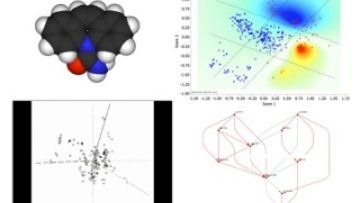Surface homeomorphisms and their lifts by covering maps
Abstract
A generic surface homeomorphism (up to isotopy) is what we call it pseudo-Anosov. These maps come equipped with an algebraic integer that measures
how much the map stretches/shrinks in different direction, called the stretch factor. Given a surface homeomorsphism, one can ask if it is the lift (by a branched or unbranched cover) of another homeomorphism on a simpler surface possibly of small genus. Farb conjectured that if the algebraic degree of the stretch factor is bounded above, then the map can be obtained by lifting another homeomorphism on a surface of bounded genus.
This was known to be true for quadratic algebraic integers by a Theorem of Franks-Rykken. We construct counterexamples to Farb's conjecture.


